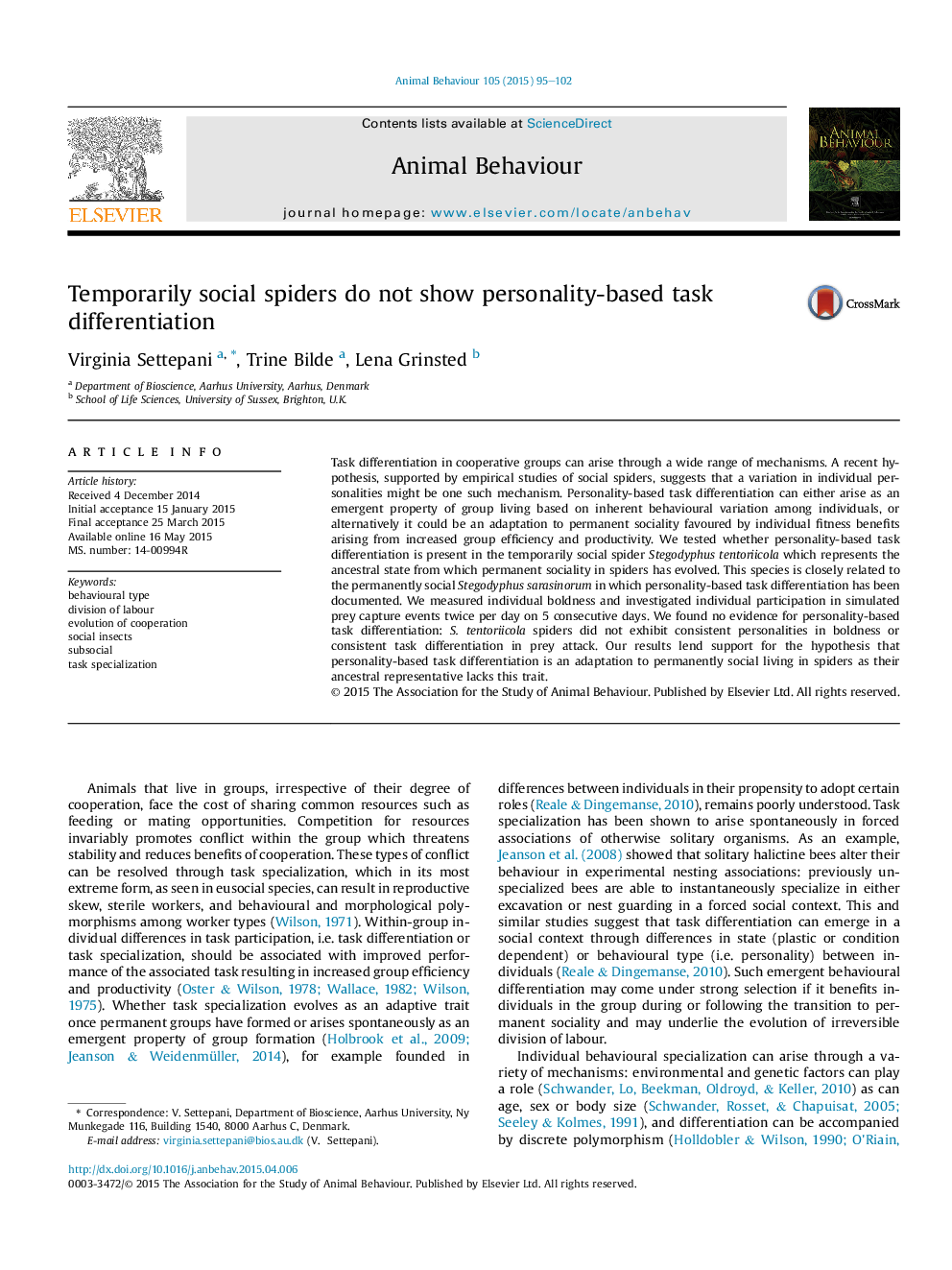| Article ID | Journal | Published Year | Pages | File Type |
|---|---|---|---|---|
| 8489815 | Animal Behaviour | 2015 | 8 Pages |
Abstract
Task differentiation in cooperative groups can arise through a wide range of mechanisms. A recent hypothesis, supported by empirical studies of social spiders, suggests that a variation in individual personalities might be one such mechanism. Personality-based task differentiation can either arise as an emergent property of group living based on inherent behavioural variation among individuals, or alternatively it could be an adaptation to permanent sociality favoured by individual fitness benefits arising from increased group efficiency and productivity. We tested whether personality-based task differentiation is present in the temporarily social spider Stegodyphus tentoriicola which represents the ancestral state from which permanent sociality in spiders has evolved. This species is closely related to the permanently social Stegodyphus sarasinorum in which personality-based task differentiation has been documented. We measured individual boldness and investigated individual participation in simulated prey capture events twice per day on 5 consecutive days. We found no evidence for personality-based task differentiation: S. tentoriicola spiders did not exhibit consistent personalities in boldness or consistent task differentiation in prey attack. Our results lend support for the hypothesis that personality-based task differentiation is an adaptation to permanently social living in spiders as their ancestral representative lacks this trait.
Keywords
Related Topics
Life Sciences
Agricultural and Biological Sciences
Animal Science and Zoology
Authors
Virginia Settepani, Trine Bilde, Lena Grinsted,
